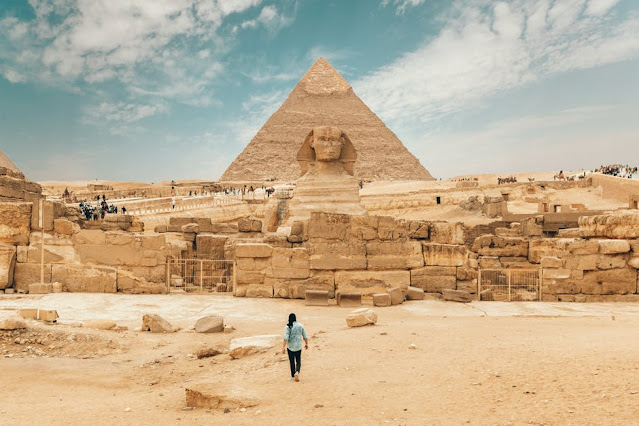Al-Khansa’s Works and Poetry Style
Al-Khansa was her nickname. Her real name was Tumadir bint ‘Amr ibn Al-Sharid. She was born approximately 575 in Najd in central Arabia (now Saudi Arabia) and belonged to the tribe of Sulaim a pastoral tribe in Najd. She was a contemporary of the Prophet Mohammad who is said to admire her poetry. In about 630, after meeting him she embraced Islam. She died approximately 664 at the age of 89 in her Arabian hometown and is regarded as the greatest Arab poetess who ever lived.
Her works:
The Arabic poetry is classified in two groups: classical and modern. Al-Khansa belonged to the classical Arabic poetry. She was the poetess of Ritha (Elegy) (الرثاء) in which a poet praises the qualities of a dead person. Among the elegy composers Al-Khansa is regarded as the greatest poetess in the history of Arab literature and that is why she was given the title of the ‘Poetess of Ritha’.
The most traumatic events in her life were the deaths of her two beloved brothers Mu’awiyah and Sakhr who were killed in trible strife in 612 and 615 before her conversion to Islam. Much of her poetry consists of sorrowful eulogies for them, through which she encouraged her tribe to avenge itself on their killers.
Emirati poetess Maryam Al-Naqbi of the Sharjah Centre for Popular Poetry says: “If you want to know the best that has ever been written by a female Arab poet, then you must read Diwan Al-Khansa (Collection of her poems).”
Emirati poetess Maryam Al-Naqbi of the Sharjah Centre for Popular Poetry says: “If you want to know the best that has ever been written by a female Arab poet, then you must read Diwan Al-Khansa (Collection of her poems).”
Al-Khansa’s Diwan features hundreds of lines of her best writing – from rebuttals and witty responses to famous Arab poets of her time, to works covering themes such as honour, love, family values and tradition.
Al-Khansa is also said to have appeared for the poetry contest at the festive market of ‘Ukaz’ located on the road to the heart of the holy site in Mecca, which was a meeting point for the best Arab poets from the region.
The Prophet Mohammad was also known to have enjoyed her poetry. He would often ask her to compose and recite them at his gatherings.
The Prophet Mohammad was also known to have enjoyed her poetry. He would often ask her to compose and recite them at his gatherings.
According to professor Hasan Al-Naboodah, an Emirati historian and dean of the College of Humanities and Social Sciences at the UAE University in Al Ain, Al-Khansa’s works provide insight into a rich time in Arab history.
“Al-Khansa’s poetry spanned a very interesting period – the pre-islamic period and the early Islamic period – and so her poems are very important, historically,” he says.
“In Arab literature, particularly poetry, the background of the authors themselves was an important factor. Al-Khansa was from an important tribe, and she had a presence. She was a witness to important events and her poems capture beautifully what has happened.”
Her poetry:
Although she lived into the Muslim era and became a Muslim, Al-Khansa’s poetry remained rooted strongly in pre-Islamic times and themes. Of her poetic output, nearly a thousand lines remain. Most of her poems are elegies (Marathi), particularly for her brothers. Al-Khansa’ became recognized as a true master of this ancient genre. She greatly added to its breadth of expression, and her innovations became standard in later elegiac tradition. The intensity and force of her expression, coupled with her tenderness and her concentration on the necessity and centrality of grief, make her poetry particularly striking and impressive. Her masterpiece is her eulogies to her brother Sakhr, a tribal chief who was severely wounded and later died after a raid against the rival Bani Assad tribe. Her verses are full of fine metaphors about loss, life, love and departure.
يذكرني طلوع الشمس صخر
وأذكره لكل غروب شمس
The rising of the sun reminds me of Sakhr
And I remember him with every setting of the sun
ولولا كثرة الباكين حولي
على إخوانهم لقتلت نفسي
If not for the numerousness of those bewailing
Their brothers, I would have killed myself
She said lamenting her brother Sakhr:
أعيني جودا ولا تجمدا
ألا تبكيان لصخر الندى؟
Oh my eyes, be generous and do not freezeWill you not weep for Sakhr of the dew?
ألا تبكيان الجريء الجميل
ألا تبكيان الفتى السيدا؟
Will you not weep for the audacious one, the handsome one
Will you not weep for the young commander?
After her conversion to Islam, four of her sons were killed during Muslim battles against the Romans and Persians, AL-Khansa refused to write any eulogies to them, saying that Islam had taught her not to wail for the dead.
Tarikhul Adabil Arabi written by Ahmad Hasan Al-Zayyat.
Various articles on the Internet.
Source:
Tarikhul Adabil Arabi written by Hanna Al-Fakhoury.Tarikhul Adabil Arabi written by Ahmad Hasan Al-Zayyat.
Various articles on the Internet.









تعليقات
إرسال تعليق
Please do not enter any spam links in the comment box.